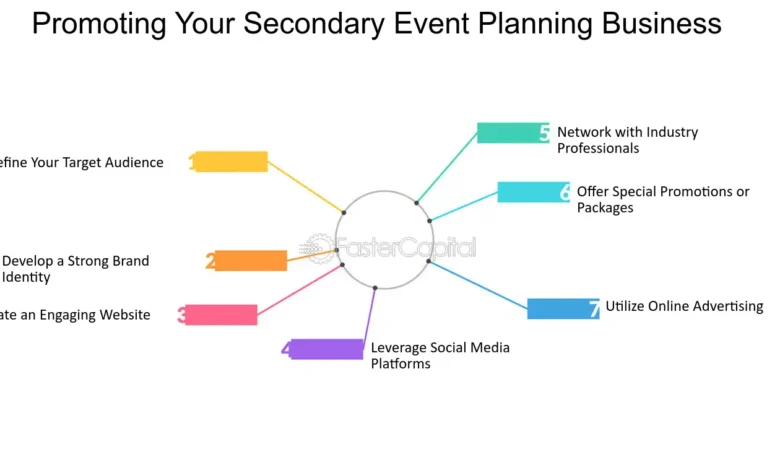Enhancing Business Outcomes: The Strategic Advantages of Using Event Planning Tools

The contemporary business environment faces challenges and opportunities, particularly when executing successful events. Amidst a sea of logistics, coordination, and management, event planning tools have emerged as pivotal assets for businesses of all sizes. They offer streamlined processes, bolstered communication, and invaluable data, effectively transforming the burdensome task of event management into a more manageable and enjoyable one. Integrating a sophisticated event planning tool into your strategy can be the difference between a good event and a great one, and here we explore how these tools are revolutionizing the industry.
Key Takeaways:
- Time and resources are utilized more efficiently with event planning tools.
- Collaboration and communication are enhanced, contributing to the success of an event.
- Organizations can optimize event outcomes by leveraging data, marketing efforts, and risk management.
- Future-focused event planning tools will continue to innovate the industry.
Table of Contents:
- Introduction to Event Planning Tools
- Time and Resource Management
- Enhancing Collaboration and Communication
- Scalability and Flexibility
- Data-Driven Decisions
- Marketing and Outreach Enhancement
- Risk Management and Contingency Planning
- Customer Experience and Engagement
- Financial Management and Budgeting
- Conclusion: The Future of Event Planning with Tools
Introduction to Event Planning Tools
Event planning in the digital age has taken a quantum leap from its archaic paper-based roots to become a sophisticated amalgamation of technology and organization. At its core, an event planning tool encapsulates a multifaceted software solution to manage the complex and dynamic components of creating and executing an event. It can range from scheduling and budgeting to attendee management and post-event analysis. Introducing these tools has dramatically altered the landscape of event management, bringing forth efficiency and seamlessness to processes that were once fragmented and prone to human error. The advent of these technologies is especially relevant in the context of global challenges, such as those detailed by Forbes regarding the pandemic-induced shifts towards virtual and hybrid events.
Time and Resource Management
Managing time and resources is vital in event planning; this is where technology can play a critical role. A well-designed event planning tool streamlines scheduling and integrates task management features that encourage a collaborative approach, reducing the likelihood of overlapping efforts or missed deadlines. It facilitates the delegation of tasks based on team members’ expertise, ensuring that the most capable individuals handle each aspect of the event. By automating routine tasks such as attendee registration, sending out reminders, and tracking RSVPs, organizers can focus on strategic concerns that necessitate a human touch, leading to better-utilized resources and potential cost savings. In this realm, the automation and efficiency provided by technology are not merely a convenience but a necessity for staying competitive and profitable.
Enhancing Collaboration and Communication
In the intricate dance of event management, each step relies on the preceding to be perfectly timed and executed. Event planning tools serve as the rhythm section, ensuring that every participant, from planners to vendors to attendees, is tuned to the same beat. Such platforms create an ecosystem of shared information where updates are disseminated instantly and feedback loops are established, fostering a harmonious flow of communication. This heightened level of coordination and transparency leads to a cohesive team environment and a unified vision for the event. The ripple effects of this can be seen not only in the fluid execution of the event itself but also in the overall satisfaction of stakeholders who appreciate being part of a well-oiled machine.
Scalability and Flexibility
Today’s events range from intimate workshops to global conferences, each with unique demands and expectations. Event planning tools are intuitively designed to accommodate this variation, allowing organizations to scale their efforts up or down as needed. Whether dealing with a sudden increase in attendee numbers or a last-minute venue change, these tools offer the skills required to adapt quickly. Customization is another core feature, enabling planners to tweak platform functionalities to suit the specific requirements of their event, thereby ensuring a perfect fit for purpose. This malleability is instrumental in managing the event at hand and building a framework that can be refined and reused for future endeavors, driving long-term event success.
Data-Driven Decisions
The power of data in contemporary business is undeniable, and event planning is no exception. Event planning tools collect a wealth of data, from attendee demographics to engagement metrics, providing organizers with a 360-degree view of their event’s performance. With such rich insights, event planners can make informed decisions to enhance the experience. It can range from optimizing session timings to better suit attendee schedules to identifying the most popular topics for future focus. Moreover, data culled from these tools can help pinpoint areas for operational improvement, optimizing not just individual events but informing a broader event strategy that is refined with each iteration.
Marketing and Outreach Enhancement
Event visibility is critical to success, and a robust marketing strategy is its linchpin. Event planning tools are invaluable, offering integrated marketing modules that streamline promotional activities across various channels. From email campaigns to social media integrations, these platforms enable a synchronized outreach, ensuring consistent messaging and branding. Furthermore, tracking and analytics functions allow for real-time marketing performance assessment, guiding budgetary allocations, and strategic adjustments. Marketing campaigns and event planning must work together harmoniously to draw in the target audience and encourage their participation in the event.
Risk Management and Contingency Planning
While surprises can be delightful in some contexts, in event planning, they’re generally unwelcome. Effective risk management, therefore, is an integral component of event strategy. Event planning tools provide a structured approach to identifying potential risks, from vendor cancellations to technical glitches, enabling proactive measures to be implemented. These platforms also aid in developing comprehensive contingency plans that can be swiftly enacted in response to unforeseen events, minimizing disruption and maintaining the event’s integrity. Such preemptive planning is crucial to circumvent potential pitfalls and instill confidence in attendees and stakeholders that the event is secure and professionally managed.
Customer Experience and Engagement
At the heart of every event is the attendee experience, the benchmark by which the event’s success is measured. Modern event planning tools are replete with features that cater to customer engagement, from interactive Q&A sessions to mobile apps that offer personalized schedules and networking opportunities. These technologies enhance the customer journey, making it more interactive and responsive to individual preferences. The emphasis on engagement is evidenced by real-time feedback capabilities, allowing organizers to gauge attendee sentiment and respond accordingly, fostering an environment of attentiveness to attendee needs. Post-event feedback is a goldmine of information, providing the raw data necessary for continuous improvement and ensuring that future events resonate even more deeply with the intended audience.
Financial Management and Budgeting
An event’s financial health indicates its overall success, and effective budget management is its cornerstone. Event planning tools are equipped with comprehensive budgeting tools, providing a transparent view of all income and expenses. These digital solutions enable event planners to track financial performance in real time, ensuring that budgets are adhered to and any deviations are quickly addressed. The granularity offered by these tools in tracking spending across various aspects of the event, from marketing to logistics, empowers financial controllers to optimize allocations and maximize returns on investments. This level of financial oversight is paramount in today’s cost-conscious business world, where accountability and financial acumen are expected and requisite for continued success.
Conclusion: The Future of Event Planning with Tools
The event planning tool marketplace is primed for continued innovation and growth. Staying attuned to these technological advancements is non-negotiable for businesses seeking to excel in event management. The Harvard Business Review’s observations on the technological disruption of the industry hint at a future in which innovation and adaptability will not only be beneficial but also necessary for survival. As these tools evolve, so will the capabilities of event organizers, heralding a new era of smart, dynamic, and successful event management.



